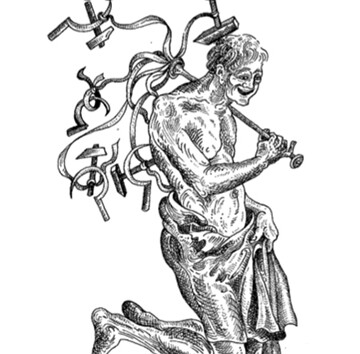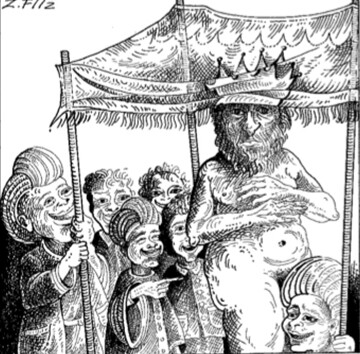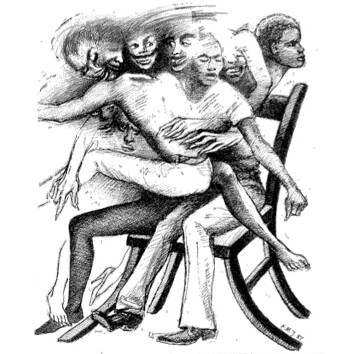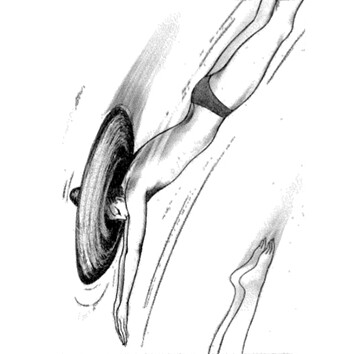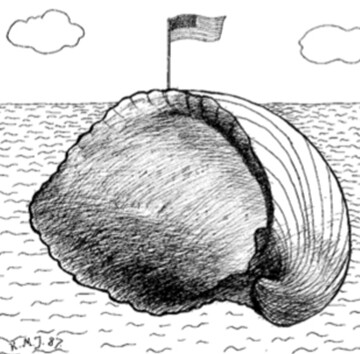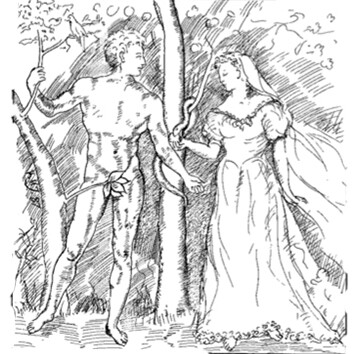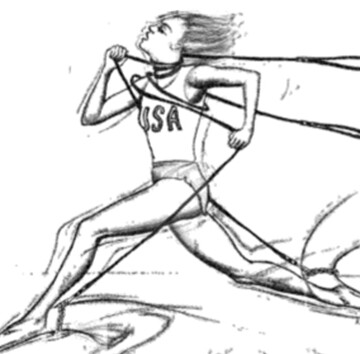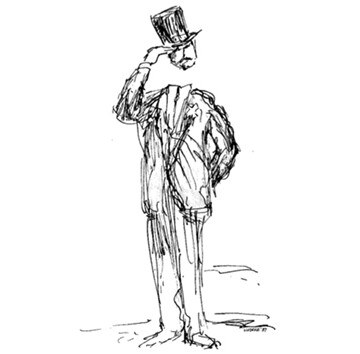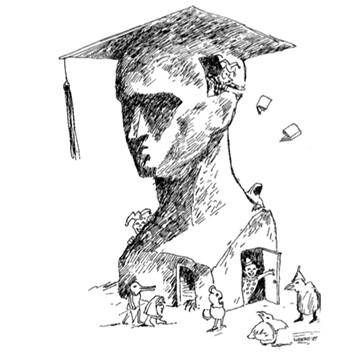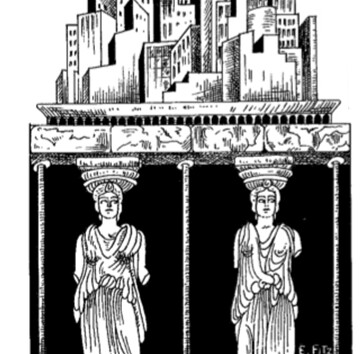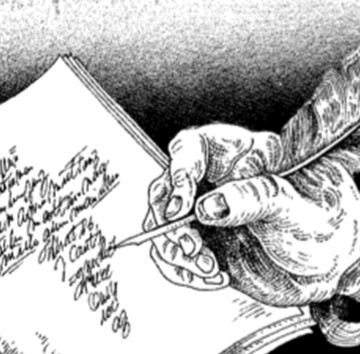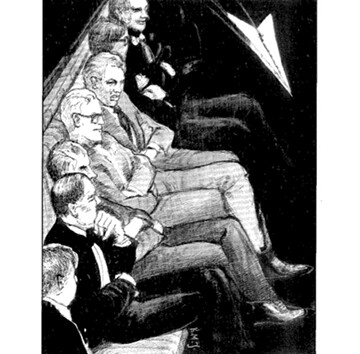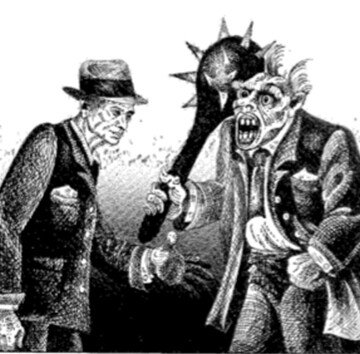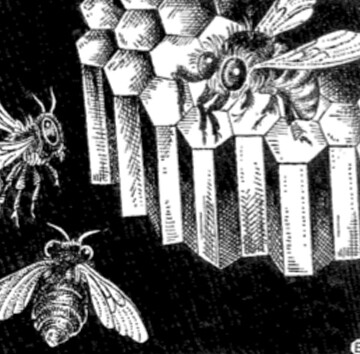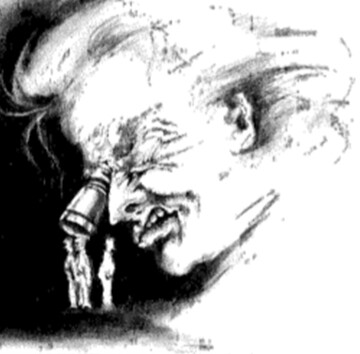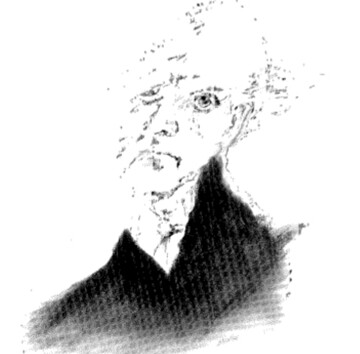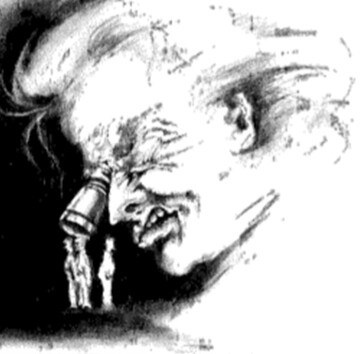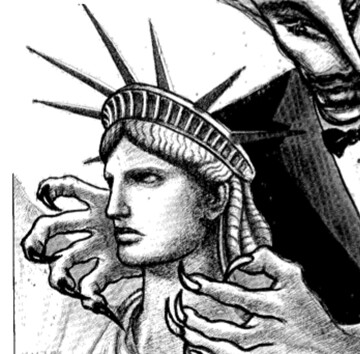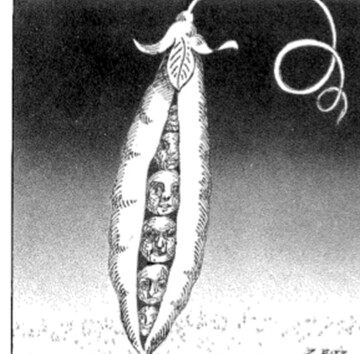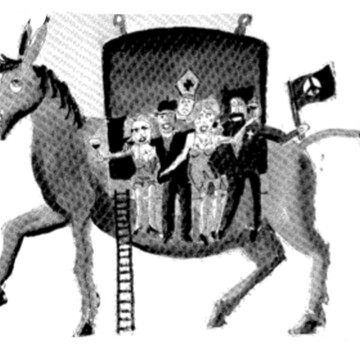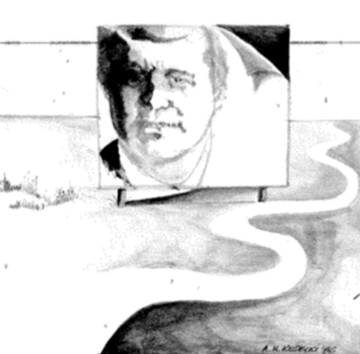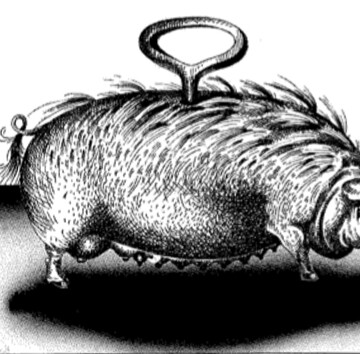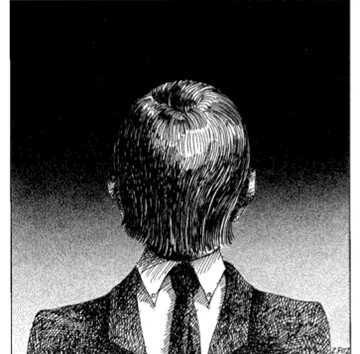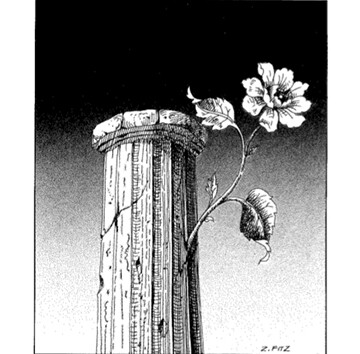As Mikhail Gorbachev moves forward in his role as the new Vozhd of the USSR, he must take pride in a unique achievement. In a few years, he has managed to internationalize a Russian word—glasnost—and by its repeated use at home and abroad has dazzled the world with miracles that have yet to materialize. Whatever...
Category: Web
Doggerel In a Good Cause
As editor of the Literary Review, I am afraid I have formed rather a low opinion of the nation’s poets. Every week 20 or 30 offerings arrive through the post, and I often glance at them before handing them over to the magazine’s saintly, long-suffering poetry editor. With amazingly few exceptions, these “poems” are prosaic,...
A (Pardon the Expression) Baccalaureate Address
The irrepressible John Towne tells us what he really thinks of higher education. Something to offend nearly everyone. I want you to know I share your disappointment that nobody you really care about and wanted could be here to make this speech. Sorry that Gary Hart is indisposed. Alan Alda was too busy and so...
Scientific American Goes to Moscow
Who is Mr. Piel? He is an American, a Harvard graduate (1937 magna cum laude), and a journalist who has devoted his career to the promotion of public understanding of science. From 1947 to 1984 he was president and publisher of Scientific American and is now its chairman. (In 1984 his son, Jonathan Piel, became...
Between Two Worlds
Reflecting on his upbringing in Trinidad, V.S. Naipaul denies cultural identity to his part of the Caribbean: “Nothing bound us together except this common residence.” Indeed, the area called Caribbean is constantly redefining itself. Its tongues include English, French, Spanish, and Dutch. Its population shows large deposits of Chinese and Indians as well as African...
The War of Mexican Aggression
” . . . As honest men it behooves us to learn the extent of our inheritance, and as brave ones not to whimper if it should prove less than we had supposed.” —John Tyndall Much in the news recently, especially in the Southwest, is the problem of illegal immigration from south of the border....
The Silent Invasion
“It is surely arguable that during the third century of American existence the main problem of this nation will be—it already is—that of immigration and migration, mostly from the so-called Third World.” —John Lukacs Last year the Immigration and Naturalization Service (INS) apprehended 1.8 million illegal aliens along our southern border—less than half the number...
Transcendent Memory
The significance of the past—the past of a minute or an hour ago, 100 years ago, or 5,000 years ago—is of consuming interest to me; many writers are concerned with the effects of time on people and institutions. The past provides writers with most of their raw material. Proust had only to taste a sweet,...
A Superfluous Man
“I once voted at a presidential election. There being no real issue at stake, I cast my vote for Jefferson Davis of Mississippi. I knew Jeff was dead, but I voted on Artemus Ward’s principle that if we can’t have a live man who amounts to anything, by all means let’s have a first-class corpse.”...
A Myth In A Garden
The following is the text of Mr. Lytle’s speech at the 1986 Ingersoll Prizes Awards Banquet: Born the day after Christmas, 1902, like a wet firecracker, as my mother remarked, I entered a world that lived with and by other creatures. My grandchildren and their ilk are unaware that they are creatures. I am closer...
Manly Codes
When Chuck Yeager was shot down behind enemy lines in World War II, shrapnel wounds in his feet and hands, German Messerschmitts still above him, he remained calm and controlled. “Back home,” he said, “if we had a job to do, we did it. And my job now is to evade capture and escape.” When...
The Order of Virtue
For some time now, the literature of the sporting world has offered one of the most agreeable ways of experiencing revisions of public reality. Perhaps this is why it is hard to read Howard Cosell’s best-seller I Never Played the Game without a sense of deja vu. “In the beginning,” he writes, “I had romantic...
Politics of Weakness
In the 1980’s the doctrine of sexual equality is increasingly being misapplied. The current discussion of women’s sports provides a graphic illustration. The central premise of the sexual egalitarian is simple: It is unjust to reward or support a woman less than a man, when the woman performs on the same level. Many would agree...
Visionary Fiction
Susan had set up the ironing board in the kitchen and upended the iron there while she sprinkled her blouse. I could not detect the heat waves rising from the face of the iron, but the morning sun showed them clearly on the refrigerator door, curling and uncurling in hypnotic arabesque. That became my image...
Rescuing Story From History
By the end of the 18th century, the novel had already begun to replace the rich variety of narrative genres that preceded it. This is a familiar theme in the history of the arts in the modern period. One particular artistic form comes to be preferred for its freedom; it crowds out the other forms,...
Some Thoughts on Being A Writer
The following is the text of Mr. Naipaul’s speech at the 1986 Ingersoll Prizes Awards Banquet. I do not really know how I became a writer. I can give certain dates and certain facts about my career. But the process itself remains mysterious. It is mysterious, for instance, that the ambition should have come first—the...
Gatekeeping Functions and Publishing Truths
When a forgery is uncovered or a plagiarized volume appears or a fake letter is adduced to support a mediocre manuscript, cries are sent forth that there is a need for tighter security by publishers. This is often coupled with a complaint that authors should scrutinize themselves more carefully. The burden of my remarks is...
Having Opinions
“The public buys its opinions as it buys its meat, or takes in its milk, on the principle that it is cheaper to do this than to keep a cow.” —Samuel Butler When opinion polls are conducted on some urgent matter of the day (the character of Colonel Qaddafi, or the compatibility of some soon-to-be-married...
About the University and Its Curriculum
The sociological thesis that education is “for society” is acceptable today because in this statement, “society” is a sufficiently vague term to prescribe fewer and fewer binding guidelines as we ascend from lower to higher education. The thesis becomes unacceptable when an ideological restriction is added: The school must be a small replica of society....
The Latin Invasions of English
“When all is said and done, something sticks in the Barbarians.” —Rudyard Kipling We need a practical education, an education that will be valid in the unforeseen and unforeseeable future. There are many possible forms, but all must include mathematics and Latin. Of the 100 most commonly used words in English, only 10 or so...
Epictetus In Uniform
I was all of 38 years old when I first encountered the classic text that would influence my life. The year was 1962, the book was Epictetus’ Enchiridion, and we got off to a very unpromising start together. I could not bring myself to see how what that old coot Epictetus had to say bore...
Ezra Pound’s ‘Language of Eternity’
What (to ask one bizarrely unfashionable question) is civilization? Set aside geography, climate, genetics, and luck. The high classical civilizations are marked by certain indispensible accomplishments: a serious respect for facts; related to this, a steady application of work toward stable wealth; a conception of justice moving in two directions, toward society as a whole...
Still At the Still Point
Thirty-one years ago, when I had aspirations as an up-and-coming critic in the Catholic press, I wrote an essay on T.S. Eliot that was published in the Jesuit weekly, America. I thought it daring to suggest that the major poet of our time was something less than the robust Christian figure which an effective propagation...
A Civic Proposal
The year 1986 marked the 100th anniversary of the birth of Ludwig Mïes van der Rohe. Mr. Mïes (the plumage “van der Rohe” was invented by him well into his career) is considered by many to be the most influential architect of this century. Schooled in Germany before the First World War, he worked his...
Media Metaphysics and Mid-Term Results
American elections are difficult enough to interpret in Presidential years. In by-election years, like 1986, political analyses assume the proportions of tea-leaf readings—or so television network analyses would seem to suggest. Faced with complex nonreductionistic information, the media resorted to metaphysical quick-fixes to explain complicated events. The U.S. Senate was recaptured by the Democratic Party,...
Political Art and Artful Politics
We speak as readily of the art of politics as we do of the art of cooking or writing, and what we have in mind in each case is what the French call savoir faire. This sense of “art” claims excellence for the activity of which the term is predicated, and since to know what...
Economic Ideology and the Conservative Dilemma
From Edmund Burke’s distrust of “sophisters, calculators and economists” to Calvin Coolidge’s boast that “the business of America is business” on to George Gilder’s “economy of heroes” has been a long journey that conservatism has not weathered well, either intellectually or politically. What was once a robust philosophy concerned with all of humane culture has...
Orwell and Religion
In his novel 1984, George Orwell created a world devoid of freedom and justice, truth and goodness. But there is another void in the book that critics seldom notice: the utter lack of religious faith. The absence of any vestige of religion seems to Christianity’s advantage: The Orwellian world is such a desolate, inhuman, and...
Olaf Stapledon: Philosopher and Fabulist
The most widely known of Merseyside philosophers was never a full-time academic. But he gave classes for the Workers Educational Association from 1912, extra-mural lectures on philosophy from the 20’s, gained his Ph.D. in Liverpool in 1925 (in philosophical psychology), and was an active and famous philosopher till he died, in 1950. Olaf Stapledon was...
The Search For the Sacred
Religion is inseparable from the sacred, the channel through which the divine transcendent communicates with man, according to man’s sensate nature. Any object, natural or man-made—a Gothic cathedral or the lapis negra excavated on the Roman forum—may assume the character of sacredness. Through it, the divine communication becomes incarnated, and, in the intellectual-rational order, verities...
David Jones: The Last Liturgical Poet
The Welsh poet David Jones (1895-1974) wrote two of this century’s outstanding literary works, and yet neither a single line of his writing nor any mention of his name is included in so recent a collection as The Harper Anthology of Poetry (1981), an otherwise excellent volume of English and American verse edited by the...
The Doors of Deception
One of the many sociological uses of Hollywood is its dramatic availability when things go wrong in America. Michael Satchell, for instance, has raised the question in Parade of whether the movies by too often glamorizing drugs and alcohol encourage their use among young people. He cites Goldie Hawn, Jane Fonda, Dolly Parton, Lily Tomlin,...
The Novel and the Imperial Self
Preoccupation with the state of the novel was until about 10 years ago one of the major bores of American criticism. From the early 1950’s well into the 60’s, it was scarcely possible to get through a month without reading as a rule in the Sunday book review supplements or the editorial page of Life—that...
Faces of Clio
“The obscurest epoch is today.” —Robert Louis Stevenson Taken together, these three books serve nicely as a kind of group portrait of Clio and her several faces. In reverse order we have the historian as diarist and memoirist, as documentarian, and as reflective sage. As one of the learned species, historians, it has always seemed...
The Evil That Men Don’t Do: Joe McCarthy and the American Right
His is probably the most hated name in American history. Other villains—Benedict Arnold, Aaron Burr, Alger Hiss, Julius and Ethel Rosenberg—today evoke merely the esoteric passions of the antiquarian or the interminable controversies of partisans. Only Joe McCarthy has given his name to an enduring term of political abuse, and in American politics today there...
Modern Conservatism and the Burden of Joe McCarthy
Many political experts have attempted to explain the rise of the right in recent years. At the close of World War II there was no unified, articulate conservative movement in the United States. Forty years later, Ronald Reagan was serving his second term in the White House, scores of conservative organizations were wealthy and growing,...
On Genetic Determinism and Morality
In his recent speech to Congress, Anatoly Shcharansky said, “All understanding between the East and West must be based on human values common to all men.” This appealing statement takes us straight to the central question of moral reasoning: What, if anything, are common human values? Humanity is and always has been faced with a...
Monkeys and Machine-Guns: Evolution, Darwinism, and Christianity
It often happens that when a Greek or Latin word is given a new lease on life in one of the major modern languages, and especially in English, the original meaning of the word may be replaced by a rather different one. This is particularly the case when a word, which was a strongly transitive...
Trojan Asses
“Then unbelieving Priests reform’d the nation, And taught more pleasant methods of salvation.” —Alexander Pope, An Essay on Criticism On April 22, 1950, I published in the London Tablet an article entitled “The American Catholics Revisited,” which provoked an avalanche of letters to the editor, wildly protesting against my observations. Nearly all of them came...
The Poet and the Plowman
Surprisingly often we talked about Vergil, usually about the Aeneid, but sometimes about the Georgics, and then with the wry sentimental fondness of old students who had been made, not quite willingly, to go to school to the poem. And during the plentiful longueurs of the Redskin games of the mid-1960’s, we would regret that...
Sexual Politics
The 1980’s witnessed one of the greatest miracles in the history of American politics and the climactic triumph of one of the most effective political leaders ever to emerge in America. That leader was a woman, and however well-known she is today, she has never achieved the honor and celebrity of her many inferiors. The...
Equal Opportunity and the Limits of Liberalism
The last two decades have seen a remarkable revival in academic political philosophy, particularly in the English-speaking world. A subject which was widely pronounced dead in the 1950’s has recently produced thousands of articles and numerous books of real importance. One indicator of the scale of this revival is the length of a recently published...
John F. Kennedy: Character and Camelot
John F. Kennedy first gained national attention at the age of 23. His book Why England Slept, published in 1940, became a best-seller and earned the new Harvard graduate plaudits as a man of learning and thoughtfulness. Kennedy was heard from again in the summer of 1944 when the New York Times carried a front-page...
The Lure of Youth
In the early 1920’s, Wyndham Lewis began to discern the makings of a trend. Virtually everywhere he looked—and particularly in novels, newspapers, and magazines—Lewis found writing that retailed the wonders of childishness, precocity, and primitive energy; that implied, too, that life was quite finished at, say, 35. Lewis devotes The Doom of Youth (1932) to...
The “Melting” Experience: Grow or Die
I have a friend, a Boston thoracic surgeon, who has a great sensitivity for issues concerning the meaning of life and the nature of man. It’s easy to understand how a man who spends the best part of his busy days at the pressure-packed juncture of life and death could become absorbed in philosophical thought....
The Unnatural History of Giant Ideology
Born in a Parisian coffeehouse during the first year of the 19th century, Ideology has grown gigantic in our time. Infant Ideology was consecrated to an educational reform; the colossus Ideology that now bestrides the world is engaged successfully in the extirpation of culture. There comes to my mind often, when someone innocently utters such...
The Doctors and the Bomb
The furor caused by the 1985 Nobel Peace Prize to the International Physicians for the Prevention of Nuclear War, represented by its two leading sponsors and leaders. Dr. Bernard Lown of the United States and Dr. Yevgeny Chazov of the Soviet Union, provides a fine opportunity to review the revival of the politics of nuclear...
Let Me Count the Ways: What to Make of Survey Research
“Things and actions are what they are, and the consequences of them will he what they will he: why then should we desire to be deceived?” —Joseph Butler, Fifteen Sermons No doubt many of us could think of an answer or two to His Grace’s rhetorical question, but the case for social science—any science, for...
The Most Unbelievable Thing
The following is the text of Professor Nisbet’s speech at the 1985 Ingersoll Prizes Awards Banquet: One of Hans Christian Andersen’s lesser-known stories bears the title “The Most Unbelievable Thing.” A king offered a fortune to the subject who created the most unbelievable thing in the arts. Competition was intense and prolonged. When at last...
Realism and the Spirit
The following is the text of M. Ionesco’s address at the 198S Ingersoll Prizes Awards Banquet: I am extremely proud and honored to have been awarded the very prestigious T. S. Eliot Prize, which has been given to such persons as Jorge Luis Borges and the novelist Anthony Powell, artists who exemplify the prime values...
